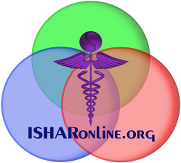The process of conscious and unconscious decision making is analyzed using decision theory. An essential part of an optimum decision strategy is the assessment of values and costs associated with correct and incorrect decisions. In the case of unconscious decisions this involves an automatic process akin to computation using numerical values. But for conscious decisions the conscious mind must experience the outcome of the decision as pleasure or pain. It is suggested that the rules of behavior are programmed in our genes but modified by experience of the society in which we are reared. Our unconscious then uses the rules to reward or punish our conscious mind for the decisions it makes. This is relevant to concepts of altruism and religion in society. It is consistent with the observation that we prefer beauty to utility. The decision theory equations also explain the paradox that a single index of happiness can be applied in society. The symptoms of mental illness can be due to appropriate or inappropriate action by the unconscious. The former indicates a psychological conflict between conscious and unconscious decision making. Inappropriate action indicates that a pathological process has switched on genetic networks that should be switched off.
The conscious mind and its emergent properties; an analysis based on decision theory
Categories:
Language:
English
Abstract:
Item Type:
Journal Article
Publication Title:
Medical Hypotheses
Journal Abbreviation:
Med. Hypotheses
Publication Date:
2011-08
Publication Year:
2011
Pages:
253-257
Volume:
77
Issue:
2
ISSN:
1532-2777
DOI:
10.1016/j.mehy.2011.04.024
Library Catalog:
PubMed
Extra:
PMID: 21565451
James A. Morris. 2011-08. "The conscious mind and its emergent properties; an analysis based on decision theory." Medical Hypotheses 77: 2: 253-257. 10.1016/j.mehy.2011.04.024.
<ref> {{Cite journal
| doi = 10.1016/j.mehy.2011.04.024
| issn = 1532-2777
| volume = 77
| pages = 253-257
| last = Morris
| first = James A.
| coauthors =
| title = The conscious mind and its emergent properties; an analysis based on decision theory
| journal = Medical Hypotheses
| date = 2011-08
| pmid =
| pmc =
}} </ref>
